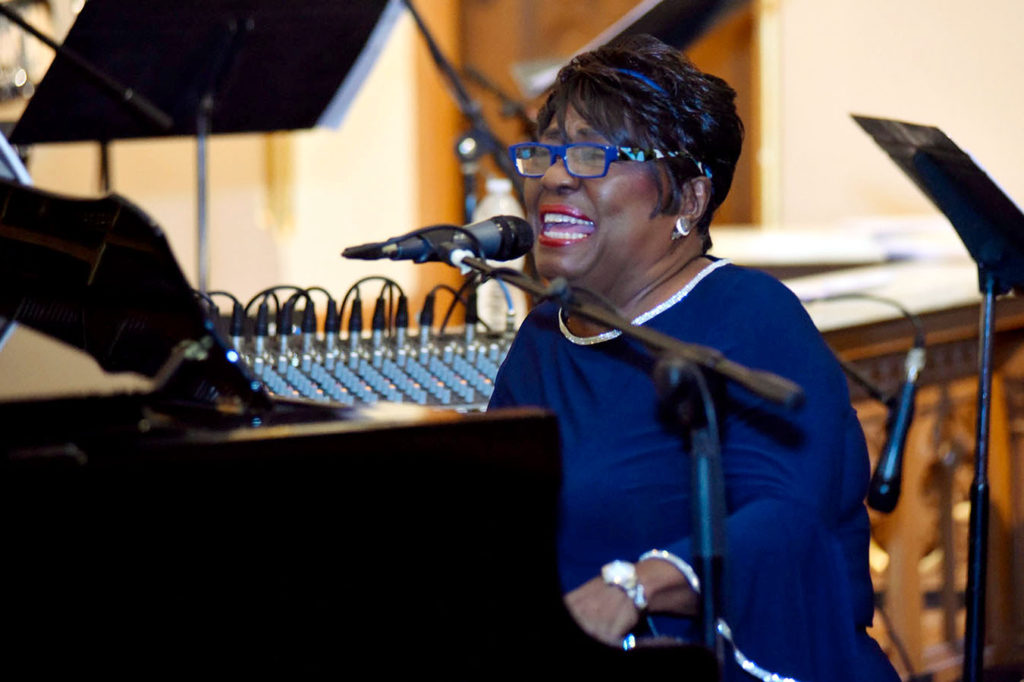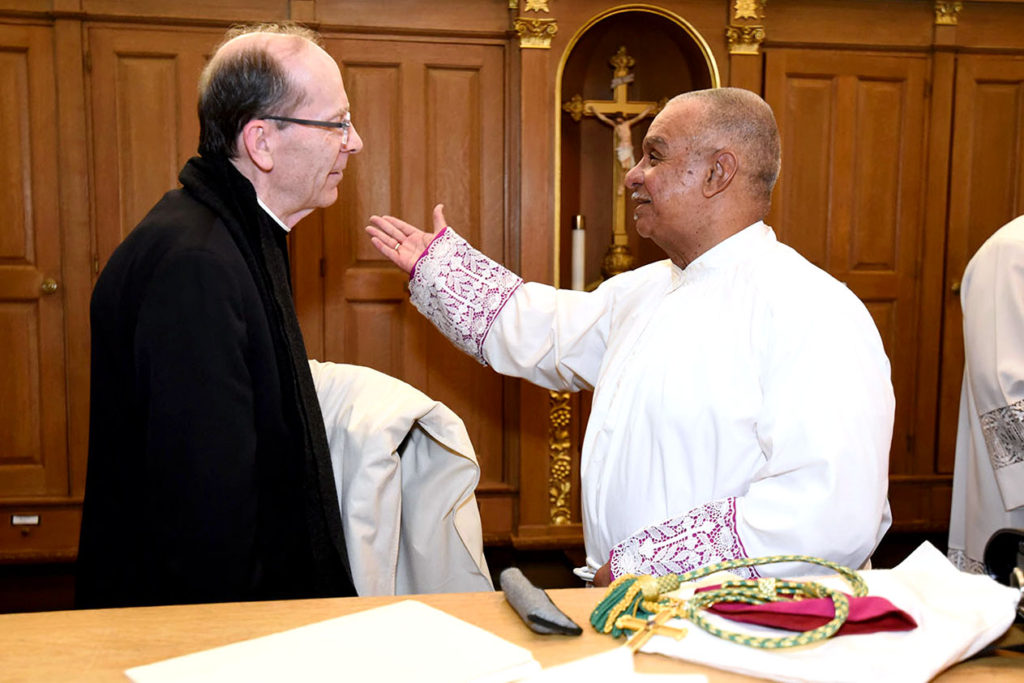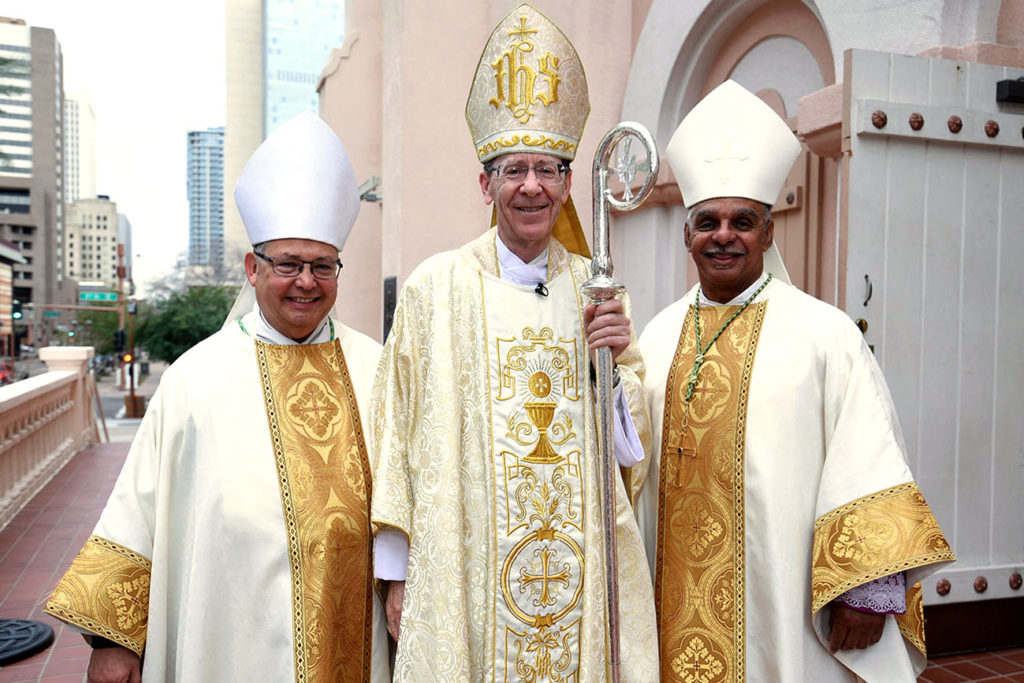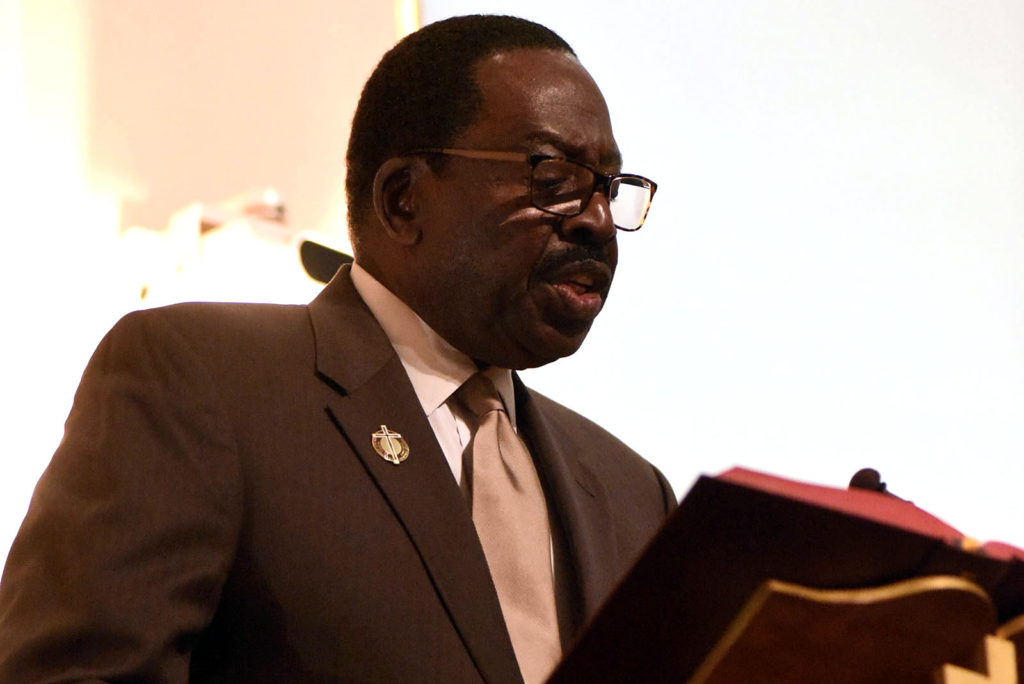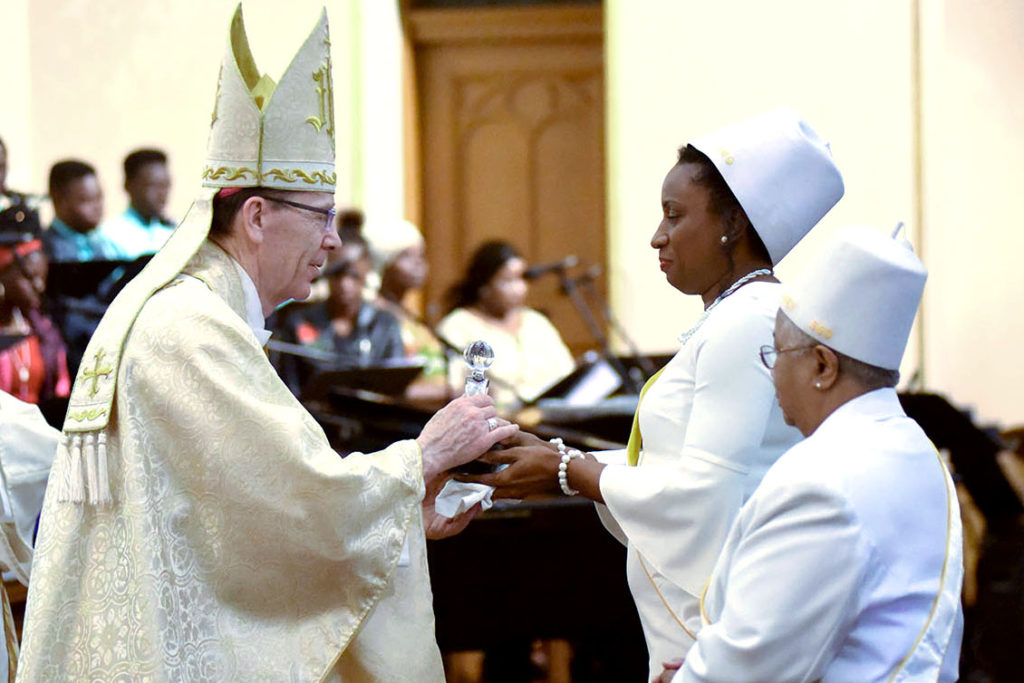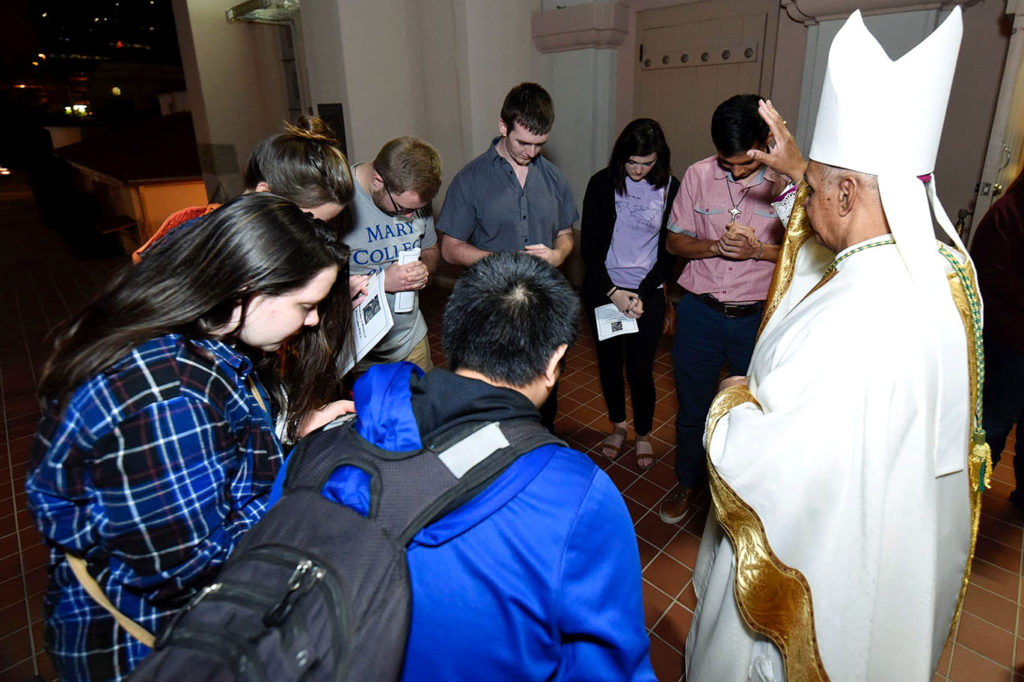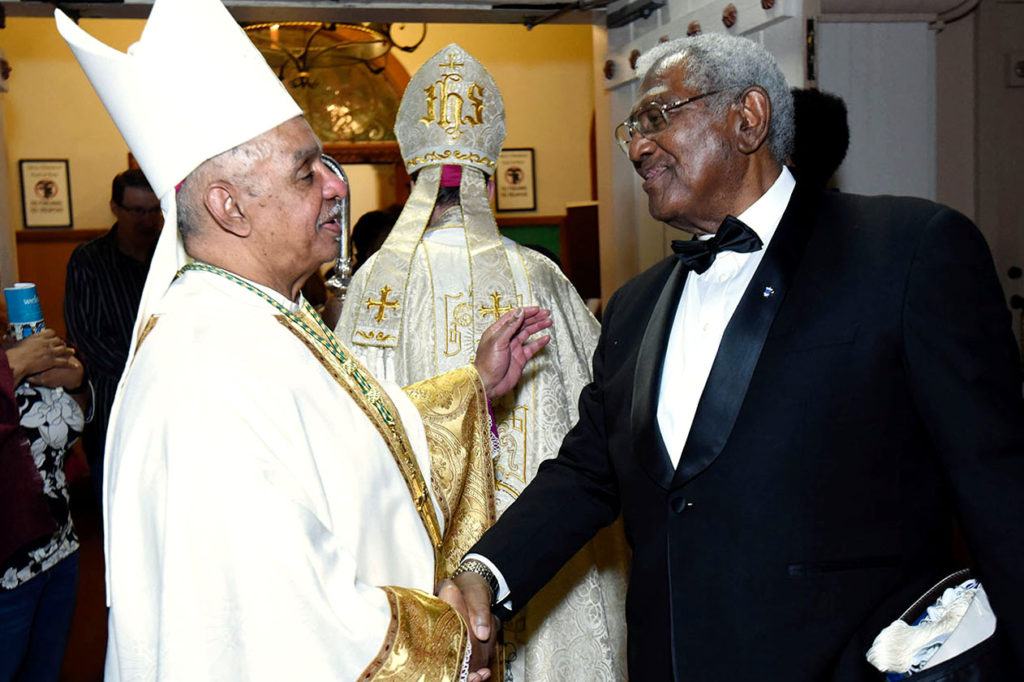
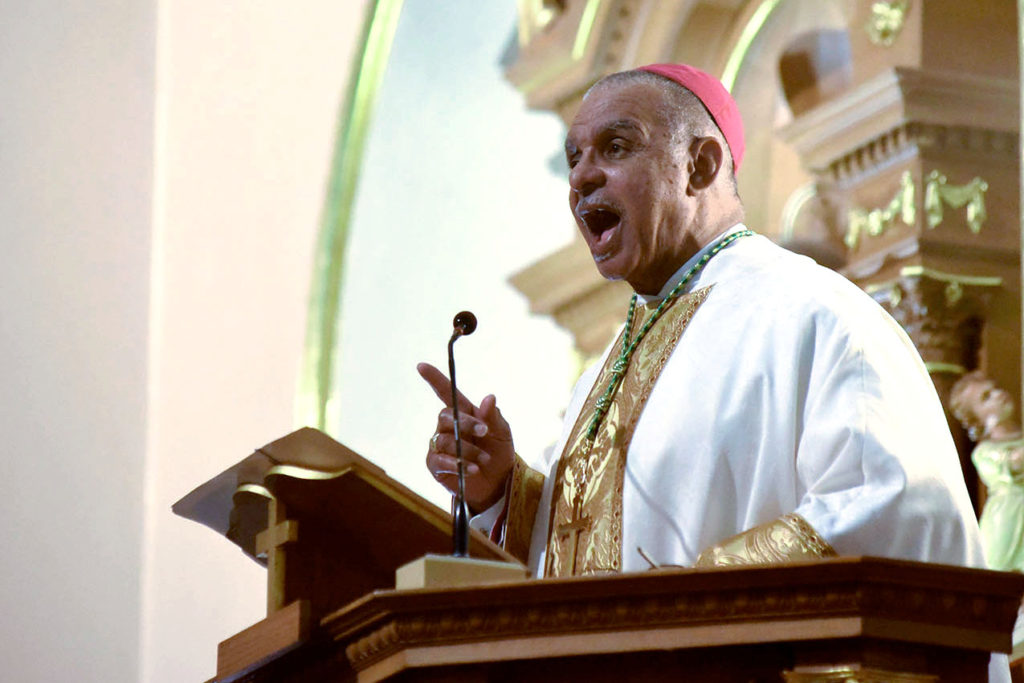
At 90, Rita Prahinski vividly recalls when Rev. Dr. Martin Luther King Jr., visited her home state of Louisiana. King, who fought for racial and economic equality through peaceful resistance, was a noble and godly man in the eyes of Prahinski and her friends. He inspired in them to do what is right and just when it comes to following the Greatest Commandment of loving your neighbor as yourself.
Nearly six decades later Prahinski, along with other members of the Knights and Ladies of Peter Claver — the only Catholic fraternal organization for African Americans — along with other Catholics from throughout the state, attended a Jan. 20 Mass at St. Mary’s Basilica to honor King’s legacy.
“What we can do today is what we did yesterday,” Prahinski said, “and that is to follow the example of Martin Luther King by bringing peace into the world.”
Bishop Thomas J. Olmsted celebrated the Mass, sponsored by the Office of Black Catholic Ministry. Concelebrating Auxiliary Bishop Eduardo A. Nevares, guest homilist Auxiliary Bishop Fernand J. Cheri III, OFM, of New Orleans and priests from throughout the diocese. They were assisted by several deacons, as well. Prior to the Mass, the St. James African Choir offered a musical prelude by Joyce M. Bailey.
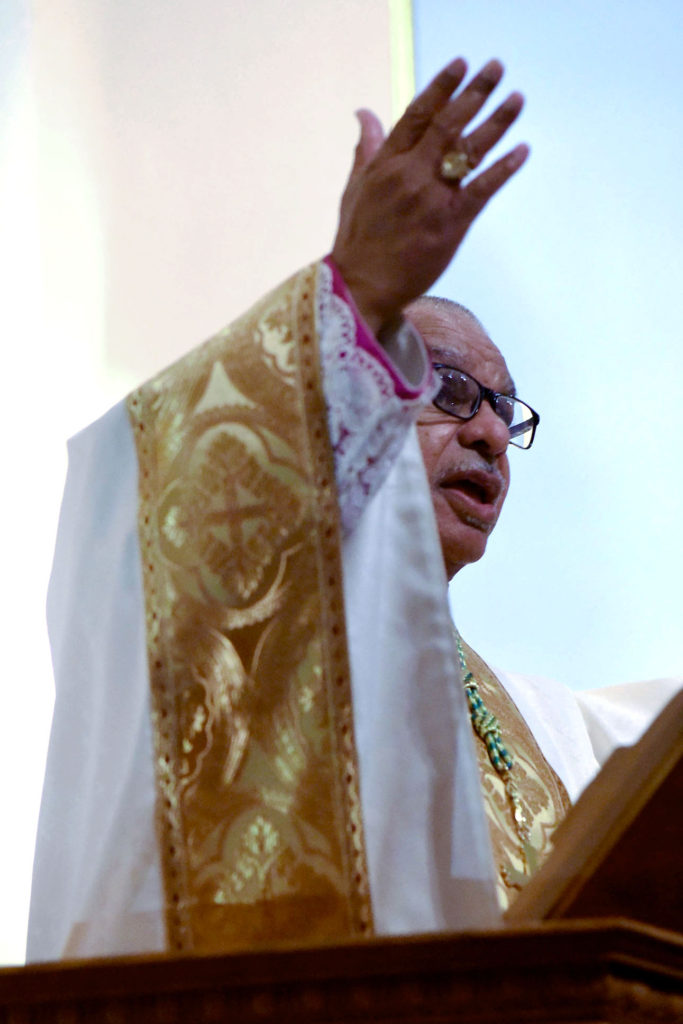
Bishop Cheri, who is also vice president of the National Black Catholic Congress, began his homily with a rousing A cappella rendition of, “Tell Them I’m A Child of God,” before he got everyone on their feet, clapping in time to the vintage hymn. Bishop Cheri then masterfully wove a narrative of a 2002 Hollywood movie titled, “Changing Lanes,” with a challenge to faithful Catholics to heed societal warnings and be unafraid to make a difference in the world by “changing lanes.”
“God in Christ gives to each of us … the ability and privilege of changing lanes,” he said, adding, “Martin Luther King said, ‘The time is always right to do what is right.’”
The bishop said as we move through our lives we can be unaware of “our need” to “change lanes,” which are an “inescapable and unavoidable” part of life. He cited examples of education, marriage, vocation, experiences, trial, discipline, hurt, disappointment and death.
“Changing lanes, as I view it, is at each of our disposal,” Bishop Cheri said, adding, “justice, peace and brotherhood” are achievable through people working with hope in the world.
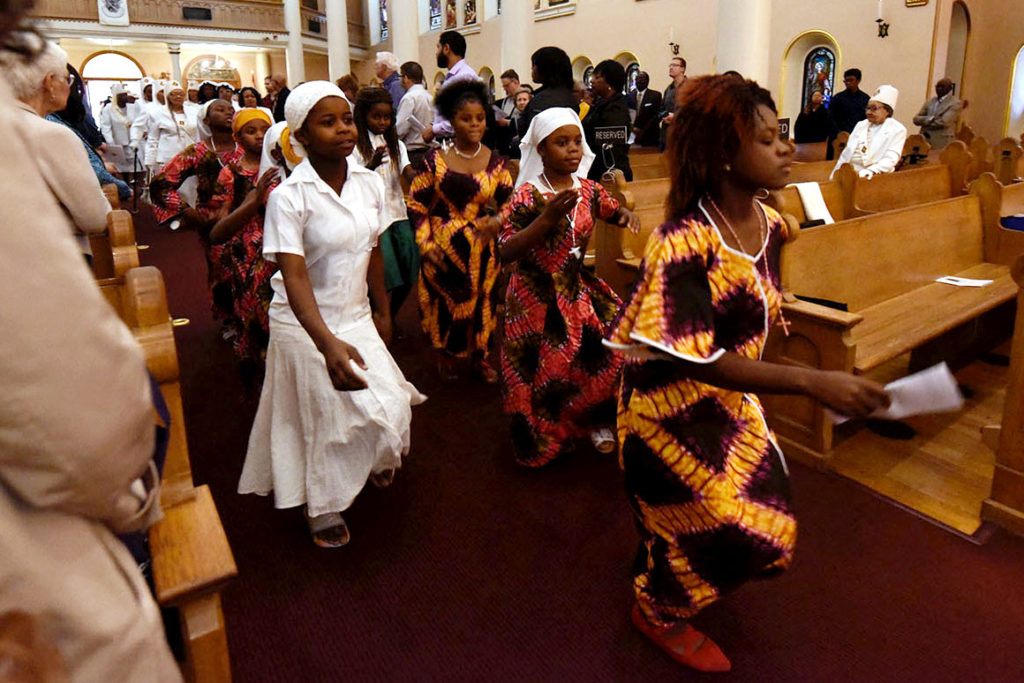
Quoting King, Bishop Cheri said that “returning violence for violence multiplies violence, adding deeper darkness to a night already devoid of stars. Darkness cannot drive out darkness; only light can do that. Hate cannot drive out hate; only love can do that.”
He concluded his homily with three reminders as it pertains to “changing lanes”: Don’t give up prematurely, don’t let your past paralyze you in the present and you can “always expect, when the dust clears, you will be blessed abundantly.”
Basilica parishioner Kathleen, who asked that her last name not be used, and her daughter were both captivated and motivated by the bishop’s homily.
“It was so joyful,” Kathleen said. “We came to celebrate … a man that did a lot of wonderful things. He was peaceful; and people forget that it begins in your heart and in your home.”
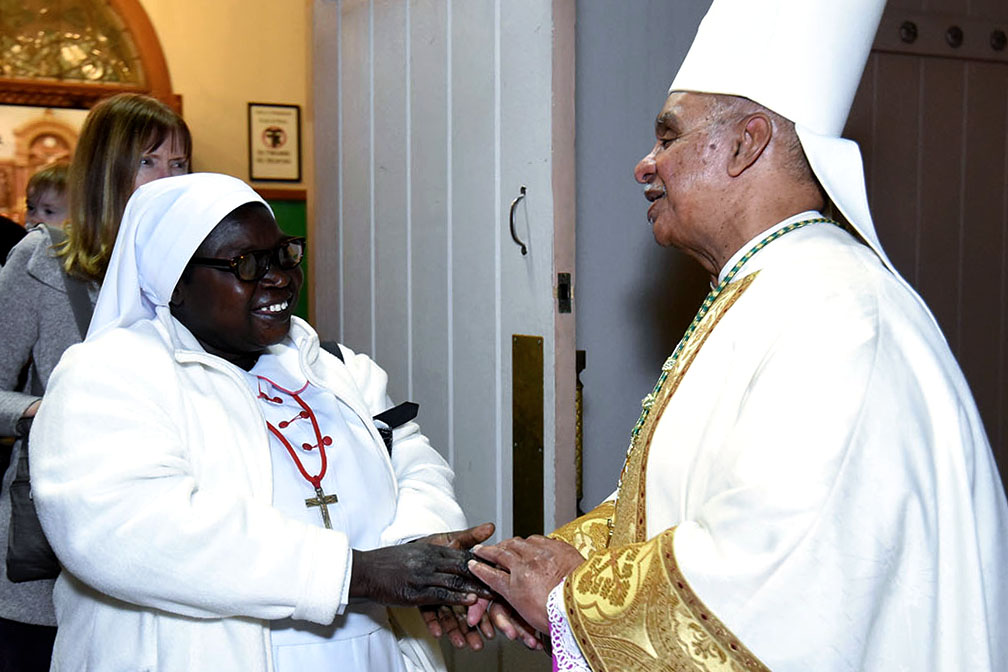
Perhaps deep down King was Catholic, as proposed by Dr. Robert L. Watson, Jr., diocesan director of the Office of Black Catholic Ministry.
“Dr. King believed that all men were created equal and had certain inalienable rights. He believed that there should be justice and equality for all,” Watson said. “Those beliefs are the essence of Catholic Social Teaching. Dr. King’s message can stay relevant to Catholics if they truly observe and abide by Catholic Social Teaching.”
After all, King’s beliefs and the social ills he championed align with the seven pillars of Catholic Social Teaching: life and the dignity of the human person; rights and responsibilities; option for the poor and vulnerable; call to family, community and participation; the dignity of work and the rights of workers; solidarity; and care for God’s creation.
“I believe that Dr. King was catholic,” Watson said. “He was not a Catholic by spiritual or religious practice, but by thought, words and deeds. He was catholic with a small ‘c,’ in a universal sense. When you examine what we as Catholics believe, who could argue that he wasn’t.”



